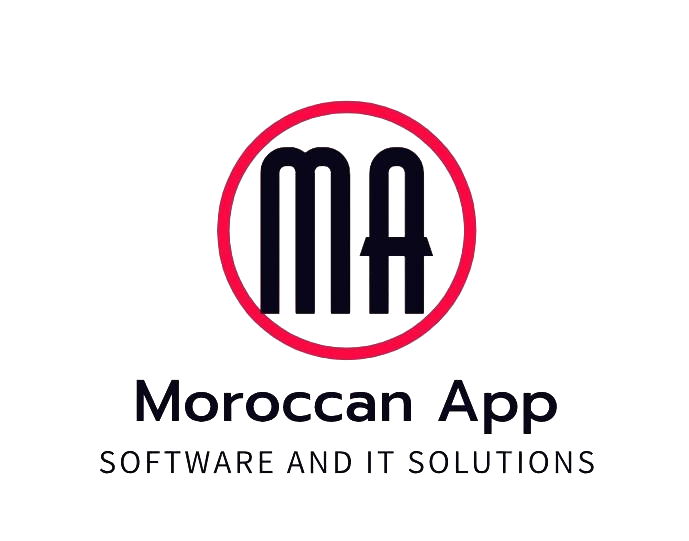In today’s professional world, choosing the right office management software is crucial for improving efficiency and organization in businesses in Morocco. These digital tools allow for the centralization of information, automation of repetitive tasks, and facilitation of collaboration among teams. This article will guide you through the essential steps to select the right software, taking into account the specific needs of your business and the key features to look for.
Key Points
- Identify the unique needs of your business before choosing software.
- Look for essential features such as document management and task automation.
- Ensure that the software integrates well with your existing systems.
- Analyze the total cost, including hidden fees and return on investment.
- Check the quality of customer support and available training options.
Understanding the Specific Needs of Your Business
To choose effective office management software, it is crucial to understand the specific needs of your business. This begins with a thorough analysis of your current situation and future goals.
Identifying Current Challenges
- Assess the problems you are currently facing in your management.
- Gather feedback from your employees about the tools used.
- Determine the gaps in existing processes that could be improved.
Analyzing Internal Processes
- Map workflows to identify key steps.
- Observe interactions between different departments to understand each other’s needs.
- Evaluate the effectiveness of current tools and their impact on productivity.
Evaluating Long-Term Goals
- Define clear goals for the future of your business.
- Consider the scalability of the software to adapt to your business growth.
- Take into account market trends and technological innovations.
In summary, a good understanding of the specific needs of your business is essential to choose software that will meet your expectations and improve your operational efficiency.
| Criteria to Consider | Importance |
|---|---|
| Features | High |
| Budget | Medium |
| Compatibility | High |
| Adaptability | High |
Evaluating Essential Software Features

To choose effective office management software, it is crucial to evaluate the essential features it offers. Here are some key elements to consider:
Electronic Document Management
Electronic document management (EDM) is fundamental. Good software should allow for:
- Intelligent storage and indexing of documents.
- Data security with well-defined access rights.
- Facilitated collaboration among users.
Automation of Administrative Tasks
Automation is a major asset. This includes:
- Automation of the management of incoming and outgoing documents.
- Intelligent processing of correspondence and forms.
- Tracking and traceability of workflows.
Performance Tracking and Analysis
An effective software should also offer tools for performance tracking:
- Detailed reports on activities.
- Data analysis for informed decision-making.
- Customizable dashboards to visualize performance in real-time.
In summary, office management software should not only meet current needs but also adapt to the evolution of your business. Choosing the right software can transform your way of working and improve your productivity.
Considering Integration with Existing Systems
Compatibility with ERPs
It is crucial to ensure that the chosen software can easily integrate with existing ERP systems. This helps avoid time loss and errors in data management. Here are some points to consider:
- Check the data import and export options.
- Ensure that the software can communicate with other applications used by your business.
- Evaluate the ease of integration with existing management tools.
Integration of Collaboration Tools
Good management software should also allow integration with collaboration tools. This promotes teamwork and improves productivity. Consider:
- The ability to share documents in real-time.
- Integration with communication platforms like Slack or Microsoft Teams.
- Synchronization of calendars and tasks between different tools.
Real-Time Data Synchronization
Real-time data synchronization is essential to ensure that all teams work with the most up-to-date information. Here are some advantages:
- Reduction of data entry errors.
- Improved decision-making thanks to up-to-date data.
- Optimization of workflows by avoiding duplicates.
By choosing software that integrates well with your existing systems, you maximize your business’s efficiency and minimize the risk of errors.
In summary, integration with existing systems is a key factor in choosing management software. It ensures a smooth transition and better collaboration within your business.
Analyzing Total Cost of Ownership
Initial Costs and Hidden Fees
When evaluating management software, it is crucial to consider initial costs as well as hidden fees. Here are some elements to consider:
- License fees: Cost of purchasing the software.
- Installation costs: Expenses related to setting up the system.
- Training fees: Investment needed to train users.
Return on Investment
Return on investment (ROI) is a key factor in justifying the purchase of software. To evaluate ROI, it is important to:
- Measure the savings achieved through automation.
- Evaluate the increase in employee productivity.
- Analyze the improvement in customer satisfaction.
Available Financing Options
There are several financing options for acquiring management software. Here are a few:
- Direct purchase: One-time payment for the software.
- Monthly subscription: Installment payment, often more affordable.
- Leasing: Renting the software with an option to buy at the end of the contract.
In summary, it is essential to analyze the total cost of ownership to make an informed choice. Good cost management can lead to significant savings and better business performance.
| Cost Type | Estimated Amount |
|---|---|
| License fees | 5000 MAD |
| Installation costs | 2000 MAD |
| Training fees | 1500 MAD |
| Total | 8500 MAD |
Checking the Quality of Customer Support and Training

Availability of Technical Support
It is crucial to ensure that technical support is easily accessible. Here are some points to consider:
- Opening hours: Check if support is available during business hours.
- Contact methods: Ensure there are multiple ways to contact support (phone, email, chat).
- Response time: Inquire about the average response time for support requests.
Training Programs Offered
Good training is essential to maximize the use of the software. Here’s what you should examine:
- Types of training: Look for online, in-person training, or tutorials.
- Training content: Ensure that the training covers all important features of the software.
- Access to resources: Check if additional resources, such as manuals or videos, are available.
Online Resources and User Community
An active community can be a valuable asset. Here are some elements to consider:
- Discussion forums: Look for forums where users share their experiences.
- Webinars: Check if webinars are organized to delve into certain topics.
- Documentation: Ensure that there is comprehensive and up-to-date documentation.
When choosing software, it is essential to check the quality of customer support and training. This can make a significant difference in the adoption and effective use of the software.
Studying User Feedback and Reviews
Successful Case Studies
To choose office management software, it is crucial to examine case studies that show how other companies have succeeded with these tools. Here are some examples:
- Company A: improved its productivity by 30% by using project management software.
- Company B: reduced its operating costs by 20% through task automation.
- Company C: optimized its document management, resulting in significant time savings.
User Reviews and Testimonials
User reviews are essential for evaluating software. Here are some points to consider:
- Overall satisfaction: What is the user satisfaction rate?
- Ease of use: Do users find the software intuitive?
- Customer support: Are users satisfied with technical support?
Comparison with Other Solutions
It is also important to compare software with each other. Here is a simple table to help you:
| Software | Monthly Cost | Key Features | User Reviews |
|---|---|---|---|
| Software A | 50€ | Project management, Task tracking | ⭐⭐⭐⭐⭐ |
| Software B | 40€ | Automation, Reporting | ⭐⭐⭐⭐ |
| Software C | 60€ | Document management, Collaboration | ⭐⭐⭐⭐⭐ |
In summary, user feedback and reviews are key elements in choosing office management software. They help understand the advantages and disadvantages of each solution and identify the one that best meets your business needs. Office management software can transform your way of working, so choose wisely!
Planning a Successful Implementation
To ensure a successful implementation of office management software, it is crucial to follow a structured approach. Here are the key steps to consider:
Establish a Deployment Plan
- Audit current processes: Examine how tasks are currently performed.
- Identify needs: Discuss with users to understand their expectations.
- Measurable objectives: Set criteria to evaluate the success of the implementation.
Train End Users
- Create a training program tailored to different skill levels.
- Organize hands-on sessions in small groups to promote learning.
- Designate internal “champions” to help their colleagues.
Monitor and Optimize Usage
- Regularly measure the software’s performance.
- Gather user feedback to identify areas for improvement.
- Conduct regular updates to ensure the system’s relevance.
Practical tip: Involve all employees in the process to ensure smooth and effective adoption. Communication is essential for the success of this transition.
By following these steps, you can effectively plan your projects and maximize the benefits of your new software.
To succeed in your project, it is essential to plan each step carefully. Leave nothing to chance and ensure that every detail is taken into account. If you want to learn more about implementing your ideas, visit our website to discover how we can help you turn your dreams into reality!
Conclusion
In conclusion, choosing the right office management software is essential for any business in Morocco. It not only improves organization and productivity but also reduces the stress associated with disorganization. By centralizing information and automating tasks, teams can focus on more important missions. Therefore, it is crucial to carefully assess your business needs and choose software that offers the necessary features. With good preparation and adequate training, the adoption of these tools can transform your work environment and contribute to your business’s success.
Frequently Asked Questions
Why is it important to organize files in a business?
Organizing files helps easily retrieve and share documents. It reduces the risk of losing important information and improves teamwork.
What is the impact of digital transformation on office work?
Digital transformation helps make daily work more efficient. It allows for the automation of repetitive tasks, freeing up more time for teams to focus on more important tasks.
What are the key features to look for in office management software?
It is essential to look for tools like electronic document management, which allows for effective file management, and task tracking to improve organization.
How can disorder harm employee productivity?
A disorganized office can distract employees, making it difficult to concentrate. This can lead to time lost searching for documents, which affects productivity.
How can businesses successfully adopt new management software?
To succeed, it is important to properly train users, plan a gradual implementation, and regularly gather feedback to adjust the system.
What are the benefits of good office management software?
Good software improves organization, facilitates task management, and helps reduce stress related to disorganization. This allows employees to work better together.




